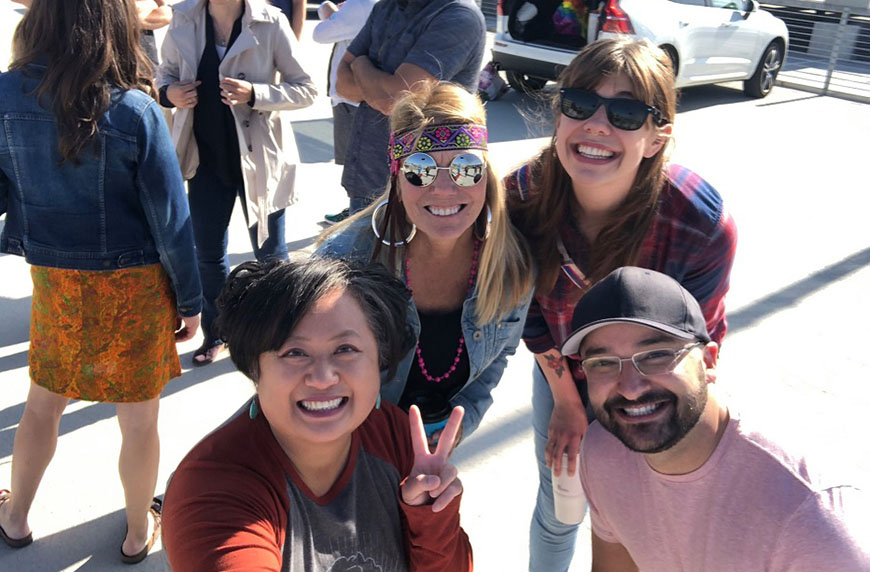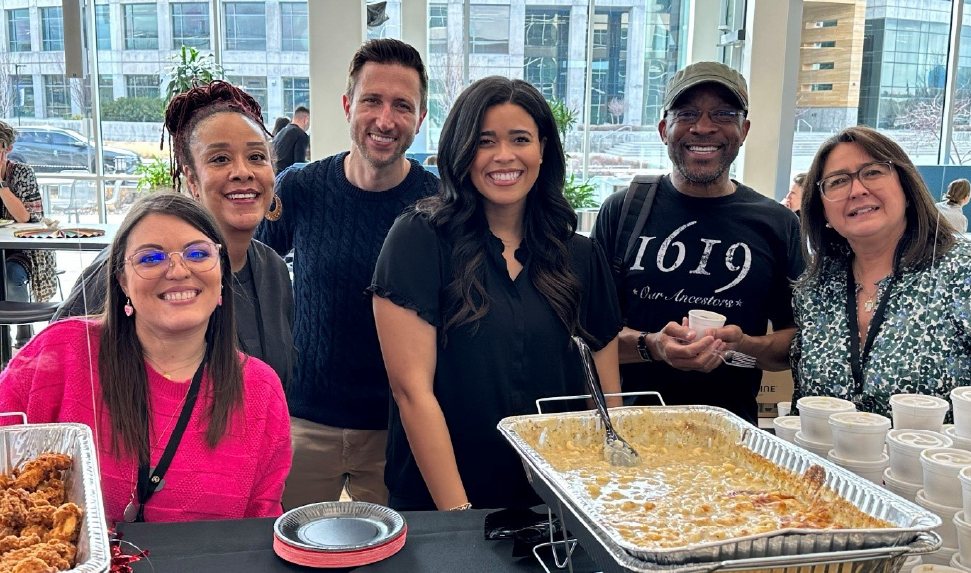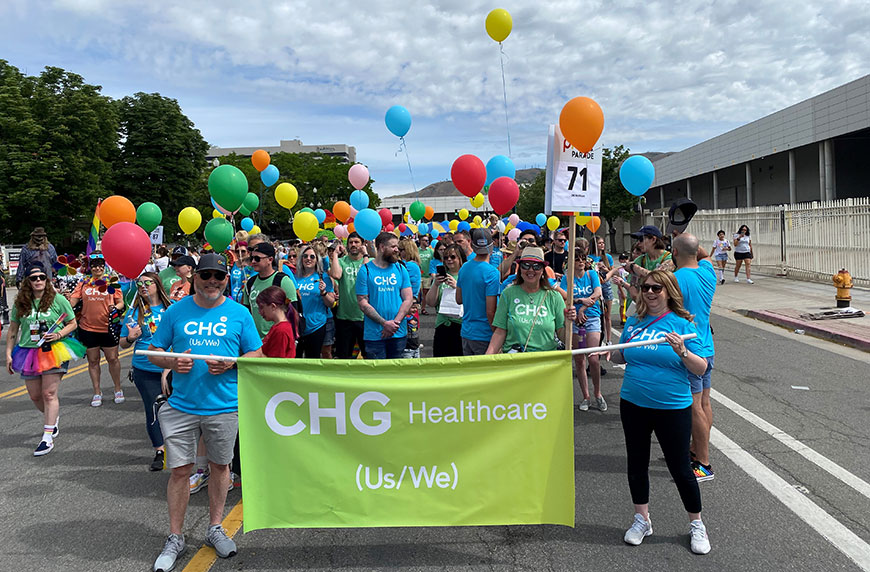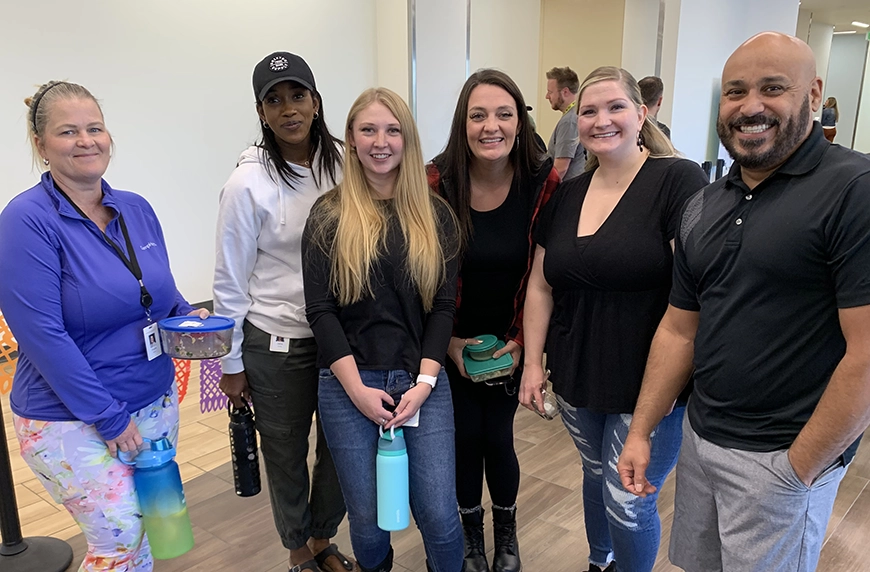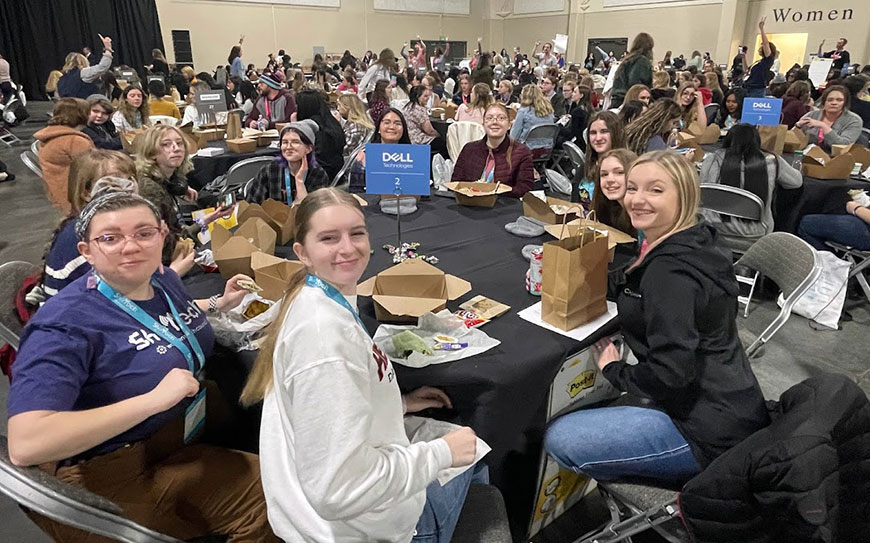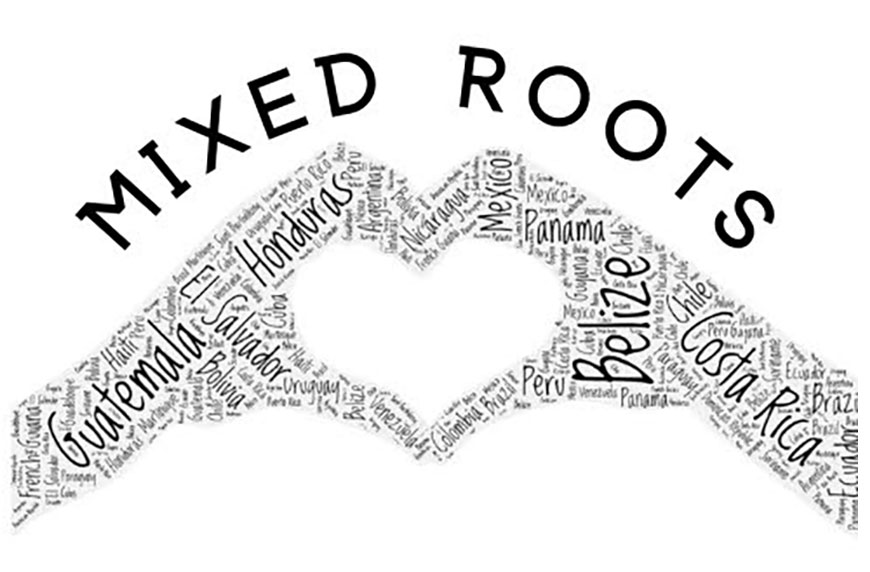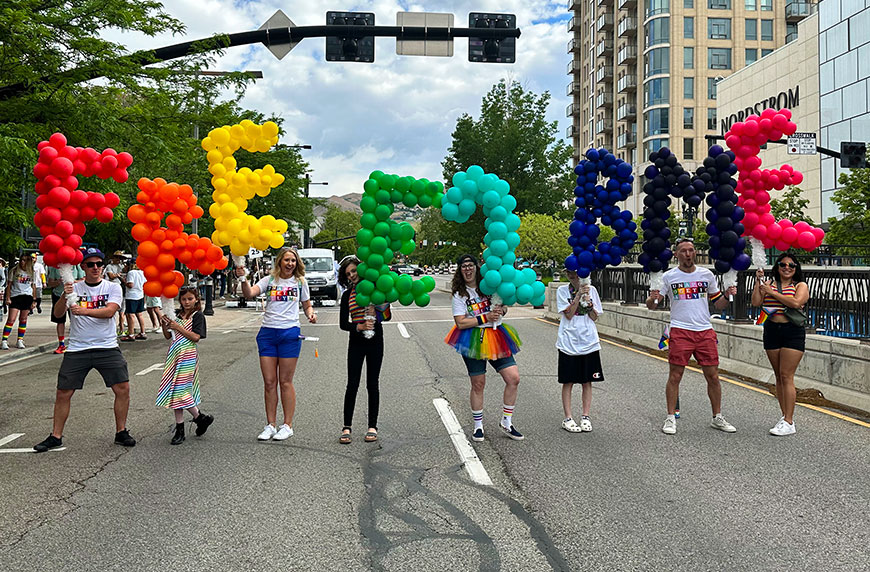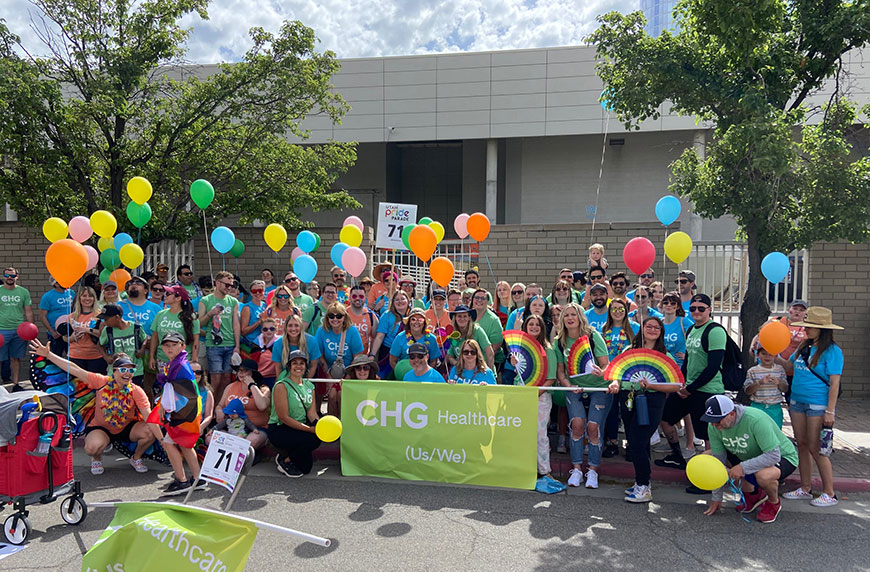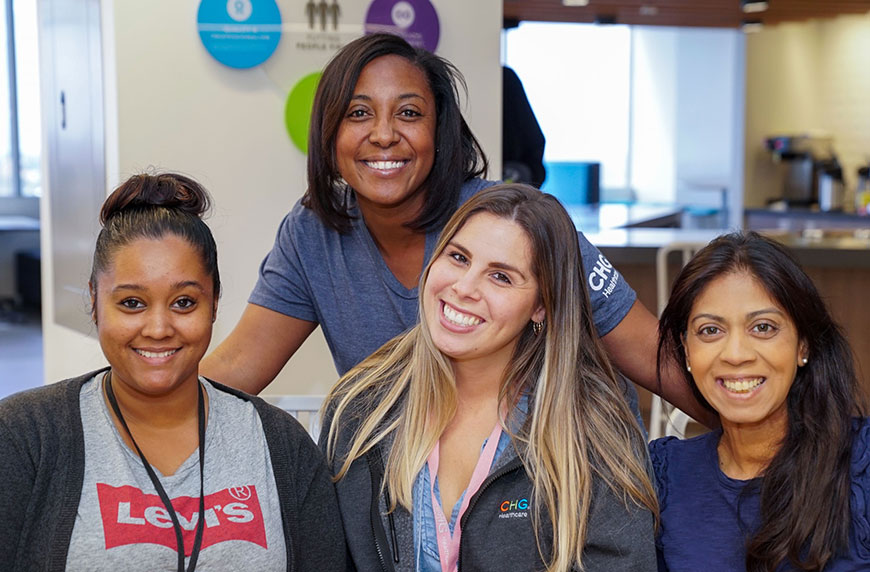Our differences make us stronger. Learn more about CHG's commitment to improving our inclusion and belonging efforts.
Category - Inclusion and Belonging
For women in the workplace, pay equity, benefits, and professional support are essential. And they’re important to us, too.
At CHG Healthcare, our Employee Inclusion Groups (EIGs) are vital in fostering a culture of belonging and inclusion.
At CHG Healthcare, our commitment to inclusion and belonging is ingrained in our company culture.
Putting People First is the heart of CHG's core values. And to ensure all our employees feel valued and heard, we offer allyship training. Learn more.
CHG is committed to creating opportunities for women in the workplace; tech is no exception. Here's the CHG women in tech employee inclusion group.
CHG's employee inclusion groups foster connections, personal and career development, and community impact.
Grace Borges used to work for a company where she didn’t feel like she could be her authentic self. Then she met CHG at Pride!
At home or at work, you want to feel like you belong, you’re important, and you’re valued. This is what CHG's Pride Collective is all about.
We’re committed to a value-based work environment where everyone feels respected and included and has an opportunity to be successful.
